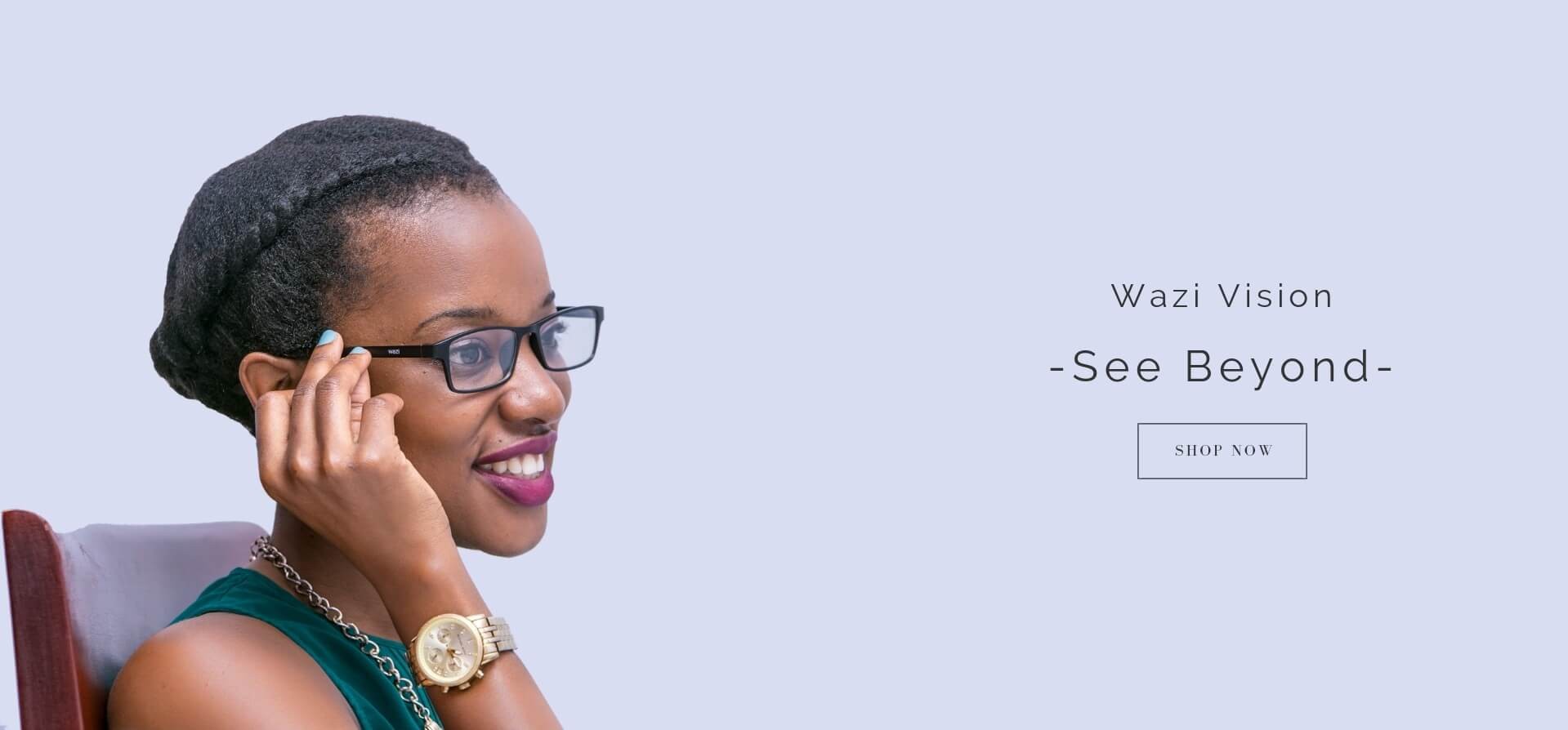Brenda Katwesigye and Geogette Ndabukiye founded Wazi Vision in 2017 to create affordable prescription eyeglasses for people of all income levels in Uganda.
The eyeglasses are stylish and manufactured from recycled plastic, wood, barkcloth, fabric and horn. A pair of ‘Wazi Round’ goes for UGX 70,000 (~ $19). Now, the company wants to add a new feature they consider essential to the brand: Afrocentrism.
On Monday, the startup announced that it was inviting design pitches from all around Africa for a new collection of glasses. One winner will receive £1,500 (~$2,000) in cash for their idea. There’s an opportunity for other selected artists to earn a share of profits on any pair of their glasses designs sold through Wazi.
Existing fashion brands are also welcome to collaborate with Wazi.
“With this rebrand, we want our eyewear to highlight the artistry and creativity of artisans across the continent,” said Katwesigye, Wazi’s Managing Director.
“Every pair of Wazi glasses will be designed by African artists for African customers and face shapes.”
Katwesigye has a personal history with prescription eyewear. She is shortsighted and has trouble seeing when there is a lot of light in a room. In 2015, she once had to pay $180 to get a pair of glasses; that’s an expensive purchase in a country where many are poor and vulnerable.
That was her inspiration to found Wazi. The company sources its materials in Uganda; plastic waste from recycling partners, and other waste like fabric and wood waste from carpentry shops. After sourcing, the materials are pre-processed and prepared for production.
“Yes, the entire process starts and ends in Uganda,” Katwesigye told TechCabal.
But what does it mean for an eyewear design to be Afrocentric?
“To us, an ‘Afro-centric’ glasses design is one that is done with African contexts and cultures in mind – be it the materials used, the design, the shape or the colours. We are looking for authentic African stories to be told through the designs submitted.”
“So many existing options for glasses are not designed for people in Africa. We believe that there is an opportunity to tap into the creativity across the continent and help to tell the stories of inspiring artisans, which we aim to bring to life through our eyeglasses.”
The call for design ideas is not limited to Africans resident on the continent. Wazi hopes to see submissions from Africans in the diaspora, as their aim is to highlight African artistry and talent.
Wazi has received funding from the Assistive Tech Impact Fund accelerator and company building support from Catalyst Fund, a startup accelerator with a portfolio that includes Cowrywise, Chipper Cash and Sokowatch, among others.















